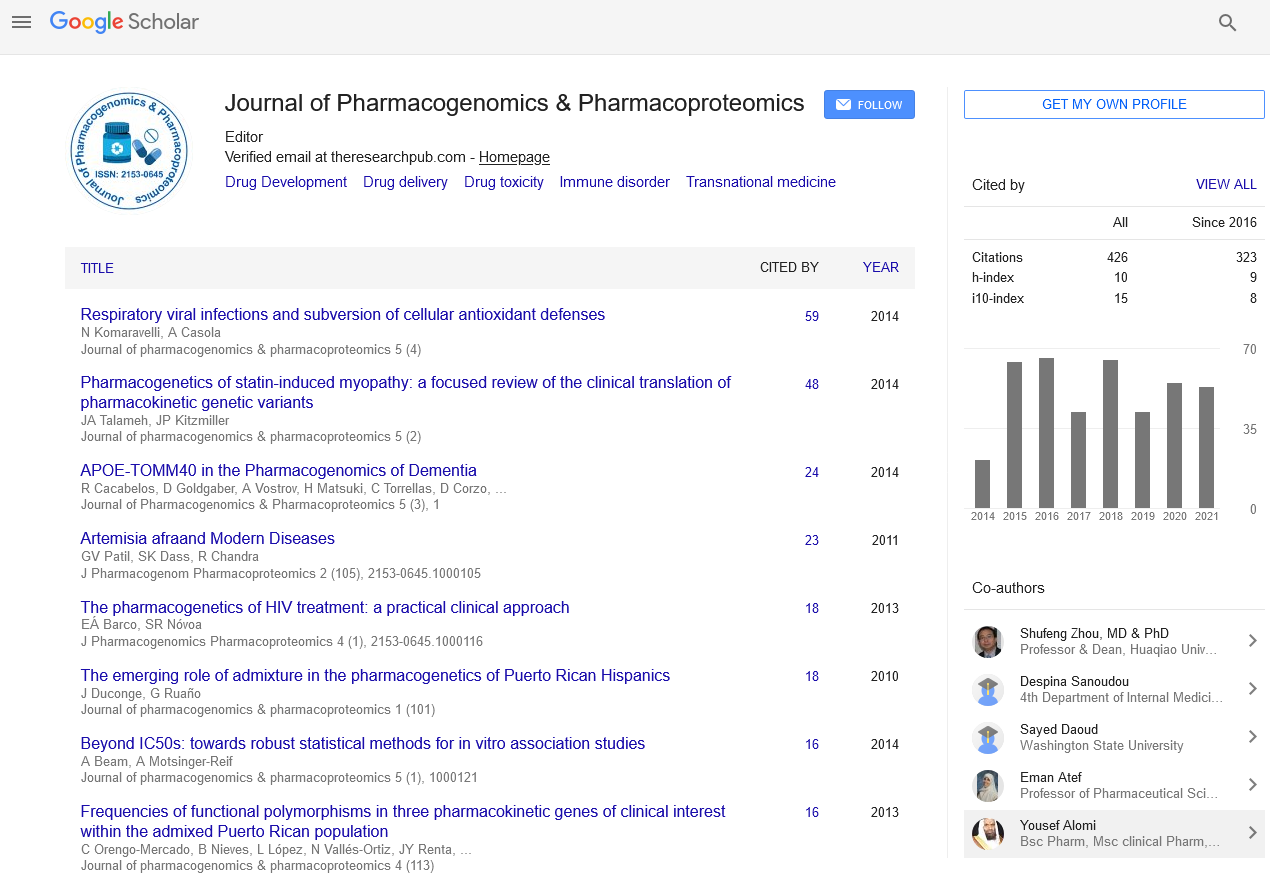Indexed In
- Open J Gate
- Genamics JournalSeek
- Academic Keys
- JournalTOCs
- ResearchBible
- Electronic Journals Library
- RefSeek
- Hamdard University
- EBSCO A-Z
- OCLC- WorldCat
- Proquest Summons
- SWB online catalog
- Virtual Library of Biology (vifabio)
- Publons
- MIAR
- Euro Pub
- Google Scholar
Useful Links
Share This Page
Journal Flyer

Open Access Journals
- Agri and Aquaculture
- Biochemistry
- Bioinformatics & Systems Biology
- Business & Management
- Chemistry
- Clinical Sciences
- Engineering
- Food & Nutrition
- General Science
- Genetics & Molecular Biology
- Immunology & Microbiology
- Medical Sciences
- Neuroscience & Psychology
- Nursing & Health Care
- Pharmaceutical Sciences
Fluorescent biosensor for probing CDK5 kinase activity in neuronal cells: Application to glioblastoma diagnostics and companion assay
5th International Conference on Predictive, Preventive and Personalized Medicine & Molecular Diagnostics
December 01-02, 2016 Valencia, Spain
May C Morris
Institute of Biomolecules Max Mousseron, France
Posters & Accepted Abstracts: J Pharmacogenomics Pharmacoproteomics
Abstract:
Glioblastoma is an aggressive malignant primary brain tumor, for which chemo- and radiotherapy currently only offer palliation. It is therefore essential to propose new and selective targeted therapies, as well as relevant biomarkers and tools for development of early-stage diagnostics and companion assays to monitor therapeutic response. The neurospecific kinase CDK5 constitutes an attractive biomarker for monitoring the onset and development of glioblastoma. This unconventional member of the CDK family which is normally involved in a wide variety of neuronal functions has been reported to be overexpressed in human glioblastomas and the clinical value of CDK5 expression has been investigated by immunohistochemical analysis of glioma and normal brain tissues, revealing that it constitutes a valuable predictive marker of tumorigenesis and progression in glioma. Our group has successfully developed a family of environmentally-sensitive fluorescent peptide biosensors that report on CDK/Cyclin kinase activity in complex biological samples such as cell extracts, tumor biopsies and in living cells. More recently we have designed a CDK5-specific biosensor that responds to this kinase in cell extracts derived from neuronal cell lines and we have further optimized it to penetrate into living cells. We have applied this biosensor to detect and quantify CDK5 activity in cell extracts and in living cells so as to propose a robust and reliable diagnostic tool. It has further been applied to develop a companion assay to monitor inhibition of CDK5 in human glioblastoma cell lines by original chemical compounds identified by high throughput screening, so as to propose new targeted therapies for glioblastoma.
Biography :
Email: may.morris@umontpellier.fr


